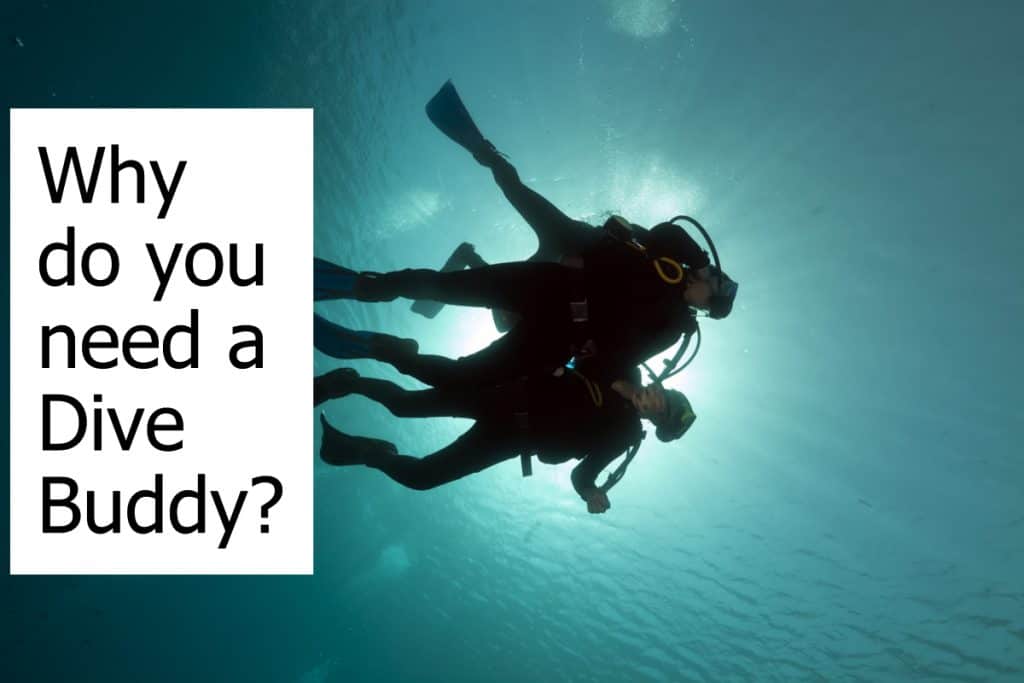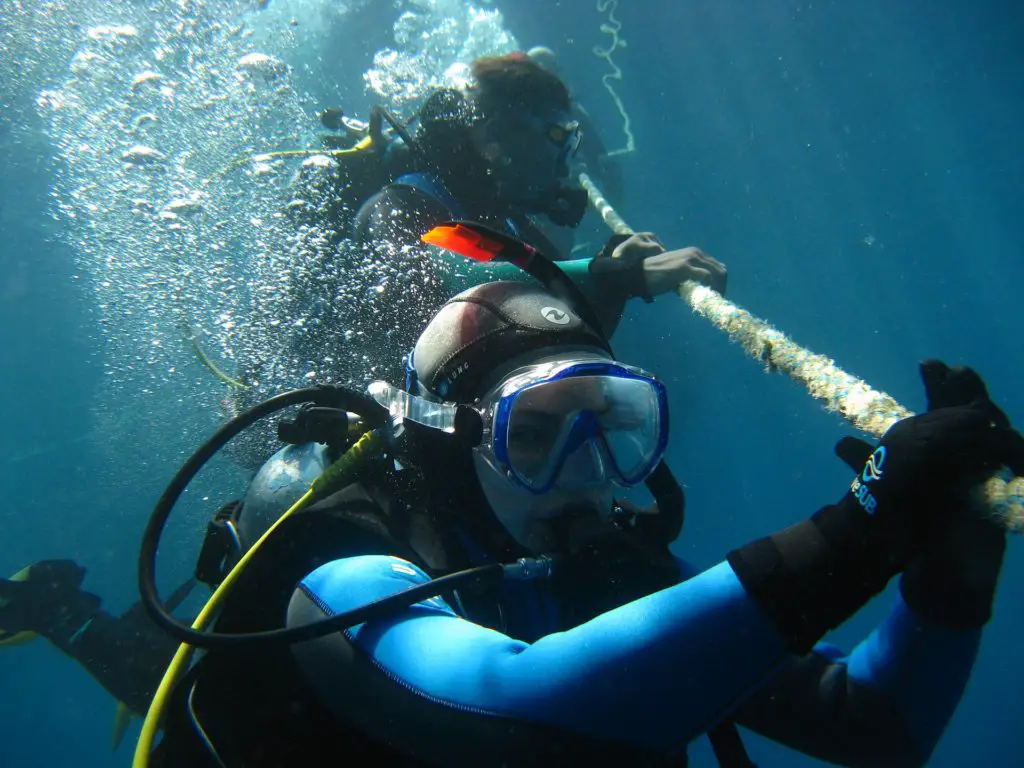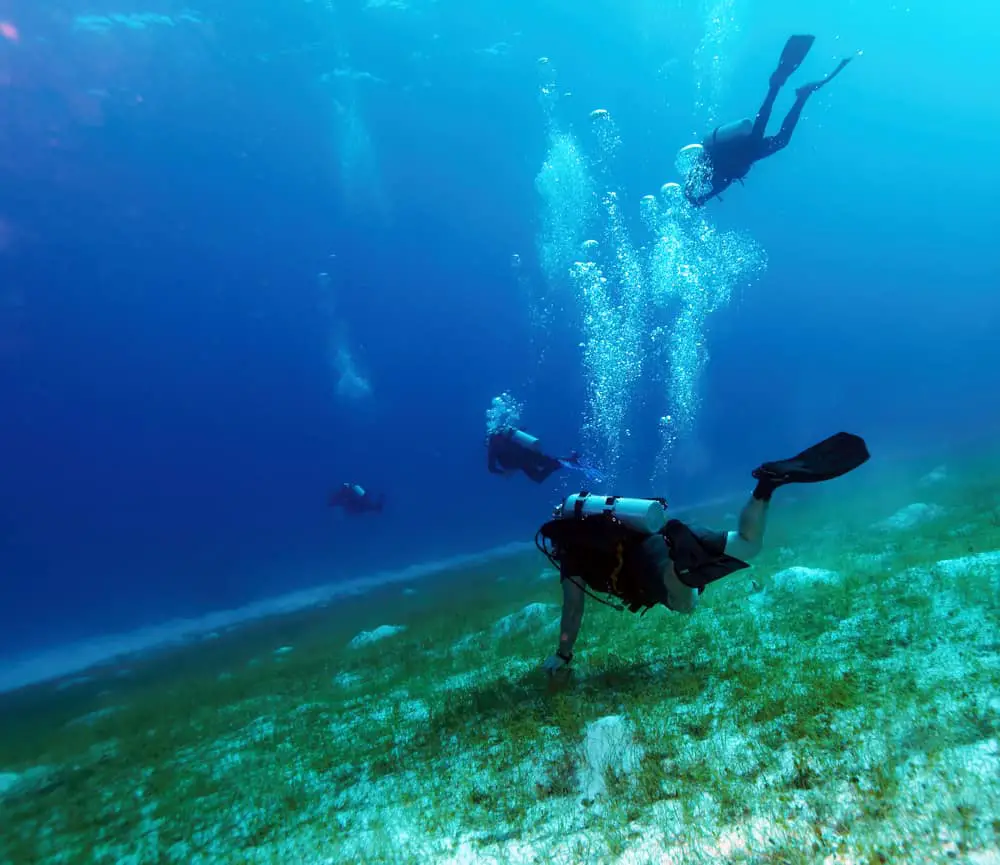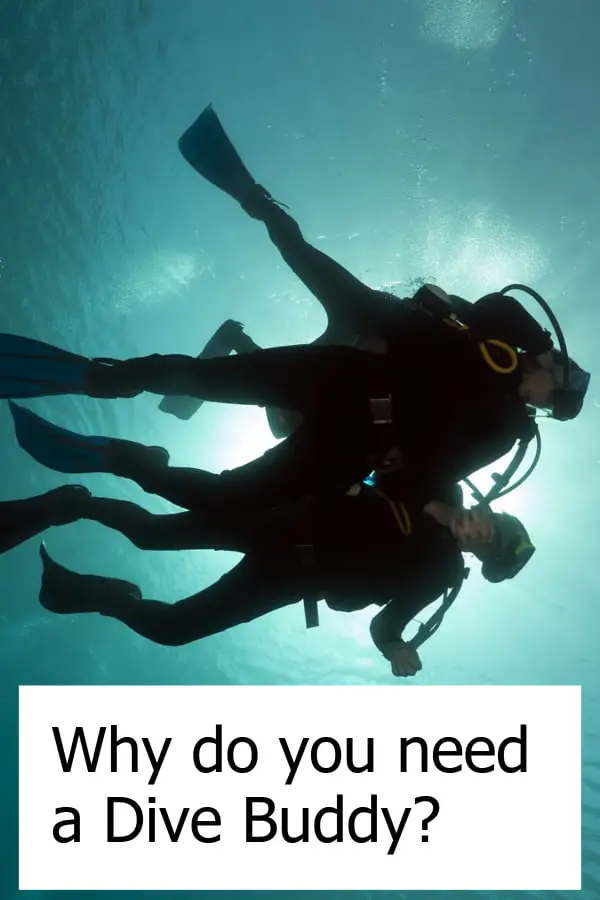Why do you need a Dive Buddy?
We all know that having a diving buddy is a requirement, but have you ever asked yourself why it’s so important? And if you don’t have one, is there a way to find one? Does this person need to meet any special requirements?

Or, on the flip side, have you ever considered the type of dive buddy you are?
Without looking into what makes a great dive buddy, you might be flying blind in terms of expectations and etiquette. Don’t worry, we’ve got the lowdown on what makes a dive buddy necessary and appreciated.
What is a dive buddy?
While scuba diving is not a hugely dangerous sport, it is essential that you take every precaution seriously to avoid a sticky situation. The best way to do that is with the buddy system.
Of course the most important task this person will have is to help you deal with emergency situations, but a dive buddy is more than just a back up plan. Ideally, this person is going to be your support system underwater, and vice versa. You look out for each other. You explore together. And you have fun. Chances are, once you’ve found a good diving partner, you’ll probably become pretty close on dry land as well.
What are the basic tasks of a dive buddy?
First steps. An important first task in establishing a good buddy system is to put together a plan. For every dive, you’ll want to sit down with your buddy to talk about what you want from this dive. Who is going to be focused on leading and navigating? Who is going to be on the right or the left? Are there any concerns that you have about this particular dive, and how can you brainstorm possible solutions?
If it’s your first time diving together, this introductory session is especially important. This is the time to discuss any challenges you expect to have underwater. For example, if you’ve been experiencing some discomfort in your sinuses and may have trouble equalizing. Or maybe you have an old injury that sometimes flares up and slows you down. Your diving buddy can’t help you if they are unprepared, so make sure to tell them everything you think is relevant to your diving.

This is also a good time to establish communication signals and safety plans. How are you going to let each other know when something is going wrong? How are you going to get each other’s attention?
Before you jump in. Once the day of the dive has arrived, it’s time to familiarize yourselves with each other’s gear. Of course, you can do this at the preliminary meeting, but it’s always best to do a refresher right before the dive. It’s also a good time to remind each other of emergency procedures.
In the water. When the time has come to begin the dive, your main task should be to take care of your buddy, and the secondary task should be to have fun. Once you’ve gotten used to diving with this person, doing both will be really easy. Just remember to stick together, communicate frequently, and be aware of changes.
Back on dry land. If you’re planning on working with this buddy in the future, it’s a good idea to have a chat with them after the dive is completed. You can start by asking them if they felt good about the dive and you as a partner. And, if there was something that you didn’t appreciate, you need to make it known so that it doesn’t happen in a crucial moment, when you really need them.
How you know when things aren’t working
Many divers complain that their buddy starts off really well but then tends to wander off. If this happens frequently, it’s not just annoying. It’s dangerous. After all, if you suddenly have an emergency with your air tank, it might not be possible for you to chase after your buddy for an emergency supply. In such a vulnerable situation, you shouldn’t be having to make the decision between catching up to your buddy and risking your safety by making an emergency ascension.

Another red flag: diving buddies who don’t communicate well. If you’ve shared signals and set up a general procedure for communication but your buddy doesn’t tend to stick to the plan underwater, you’re going to be frustrated. And, in times of distress, you’re going to feel unsupported.
If you find yourself in a situation in which you and your diving partner aren’t meshing well, the best thing to do is talk to them. Just be honest and let them know your concerns. If they’re not willing to meet your expectations, it’s probably time to move on. After all, your safety has to come first.
Finding a diving buddy
The process of finding a good partner can be tedious, but there are ways to tap into the diving community. To start, you can ask your diving instructor or friends who dive if they have any referrals.
If you don’t have access to those connections in real life, there is a huge community online. There are seemingly endless forums and websites dedicated to helping you find a diving partner in your area. In our technologically connected world, you can even have the preliminary meetings virtually and meet up in another part of the world for a dive.
Find a good buddy, and remember to be a good buddy
Finding a good diving partner is invaluable. This person is with you in some of the most exciting and vulnerable moments of your life, so you want to make sure you’ve found someone reliable and, of course, fun-loving. Together, you’ll have an amazing experience!

